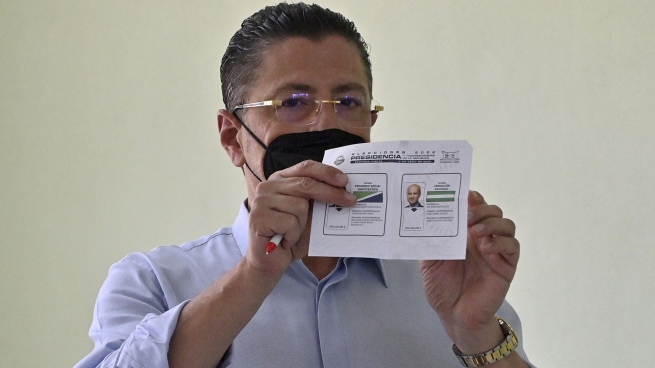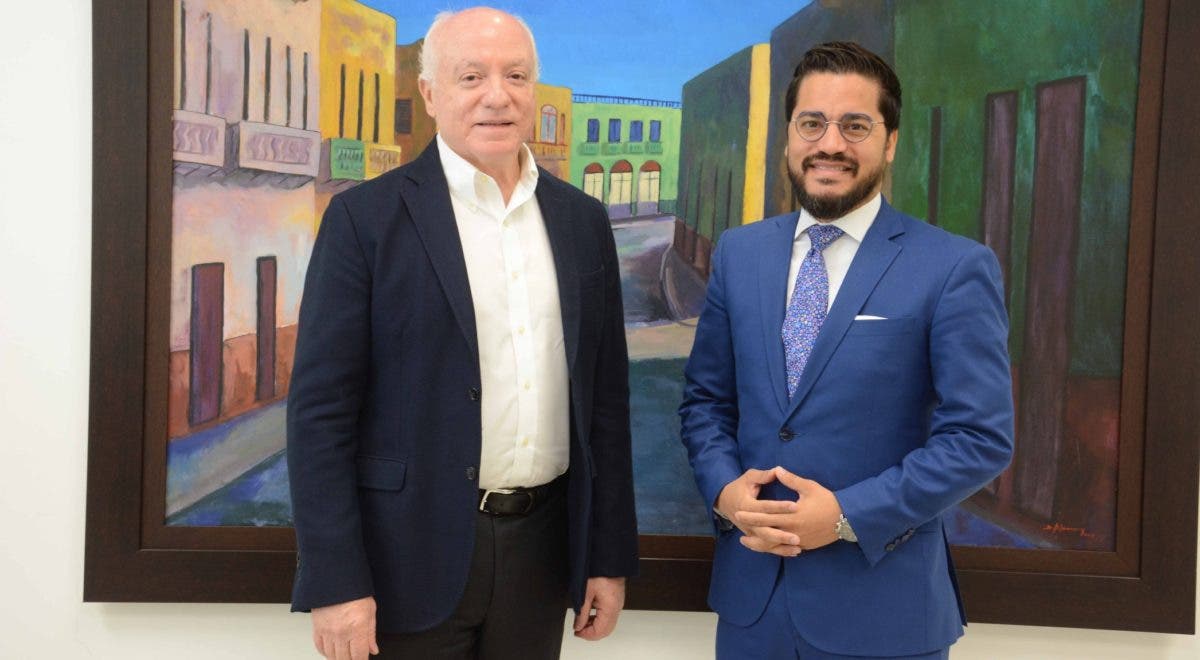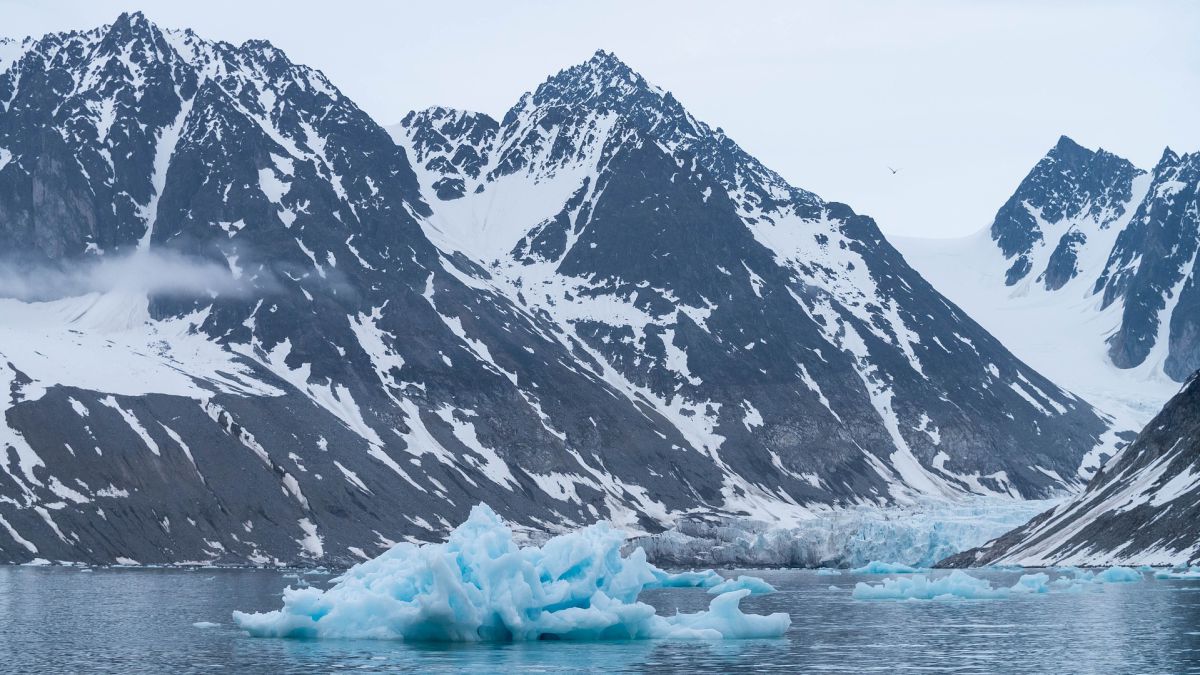Conservative economist and former Chancellor of the Exchequer Rodrigo Chaves prevailed in the presidential ballot this Sunday in Costa Rica with 52.88% of the vote against 47.12% of former center-left president José María Figueresreported tonight the electoral authority.
That was the result when 95.24% of the provisional count had been completedreported the Supreme Electoral Tribunal (TSE) on its website.
At that point in the count, the turnout was 57.32%, easily higher than expected and expected even shortly before the polls closed, around 40% and similar to that of the first round.
Despite the advanced count, neither Chaves nor Figueres had spoken until around midnight in Argentina.
The TSE began disclosing the results shortly after 8:00 p.m. (11:00 p.m. in Argentina), two hours after the voting centers closed after a quiet day, without major incidents, and with a growing turnout as the afternoon progressed. .
By noon the two candidates had already voted: Chaves, in a school in the center of San José, and Figueres, in another on the outskirts of the capital.
“Go out to vote, go out to vote, go out to vote; we are going to win, this is going to be a tsunami, we are going to sweep”, Chaves said after completing the procedure.
“I invite you to vote for your desires, not for the fears that they have wanted to instill in you, not for fear, not for lies; vote for what you dream of,” he had said shortly before, in a video released on social networks. .
Meanwhile, Figueres called “vote with joy, respecting the preferences of each person, but reinforcing the democratic system” of the country.
Instead, President Carlos Alvarado voted after 4:30 p.m., also at a school in San José, accompanied by his wife.
“The polls are still open, we all have the option to decide, let’s assume that responsibility, this is the moment,” he said then.
He then posted on his Twitter account: “We are one of the 20 strongest democracies in the world, and choosing our rulers in peace and freedom is a right and a privilege that we must exercise. Congratulations on this new democratic day.”
“It has been a very quiet morning in terms of incidents and we have the report that 100% of the voting tables were open at 6:30 a.m.,” said the director of the TSE Electoral Registry, Héctor Fernández, at a press conference. at noon.
The official denied the veracity of rumors about alleged electoral crimes and assured that the TSE had already identified the company that circulated them, according to the Sputnik news agency.
In another contact with the press, late in the afternoon, officials reported that a citizen died of a heart attack after voting in Desamparados, San José province.
The victim, whom the local press identified as Armando Durán, 76, “was decompensated and had a heart attack after voting and placing the ballot in the ballot box,” Fernández explained.
Some 3.5 million of the five million inhabitants of this nation were eligible to vote. The winner will rule for four years.
Although both candidates assured that their axis would be the economy, the campaign had more accusations than proposals.
Chaves and Figueres were the first two in the February 6 elections, both with less than 40% of the votes, and ahead of 23 other candidates, an unprecedented sum in the country’s democratic history.
Chaves, who carries a sanction for sexual harassment, slightly ahead of Figueres in the polls.
Poverty affects 23% of the inhabitants of this leading country in environmental protection and with abundant natural attractions, which suffered one of the largest falls in employment in the region between 2019 and 2020 (-14%), due to the pandemic , according to ECLAC. Its debt is equal to 70% of its GDP.
“The urgent issues to attend to are those that are causing discomfort and suffering to the population; the first, the lack of work; second, the cost of living, there is little work, little income and on top of that they charge very expensive”pointed out Chaves, from the new Social Democratic Progress Party (PPSD).
Aged 60, Chaves is an economist who has worked for more than 30 years at the World Bank. He was also Minister of Finance of the current government of Carlos Alvarado, for 180 days, between 2019 and 2020.
“In the economic agenda, unemployment is the most important thing, the creation of job opportunities is the priority; the first projects that we will submit to the Assembly have to do with promoting work,” said Figueres, of the traditional National Liberation Party (PLN). .
A 67-year-old industrial engineer, he was already president between 1994 and 1998 and is the son of the historic president José Figueres Ferrer, who abolished the Army in 1948.
There were 18.1% undecided, according to a survey by the Center for Research and Political Studies (CIEP-UCR) on March 29.
In the polls, Chaves remained ahead, but his advantage was progressively reduced from 10 percentage points at the beginning of March, to just over three.
In the second round, the Constitution states that whoever gets the most votes wins. If there is a tie, the oldest wins. In this case, Figueres.









